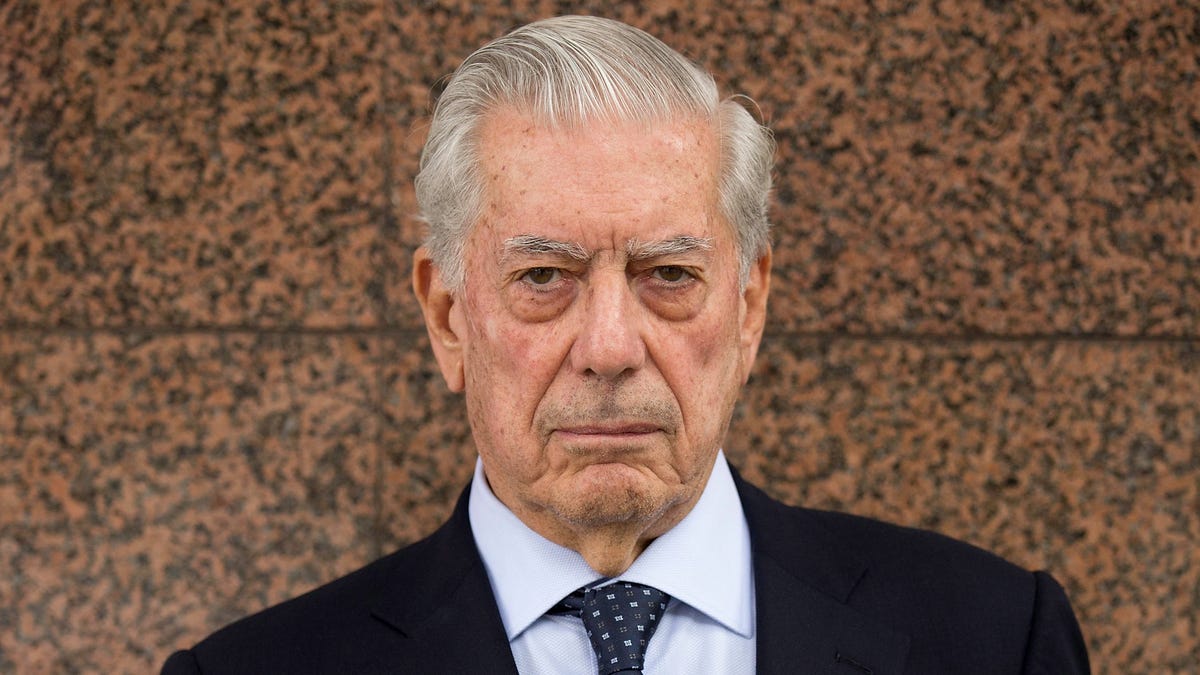
MADRID, SPAIN - JUNE 09: Nobel prize-winning writer Mario Vargas Llosa poses for a picture prior to attend the 7th edition of the 'Catedra Real Madrid' Project at Santiago Bernabeu Stadium outdoors on June 9, 2015 in Madrid, Spain. (Photo by Gonzalo Arroyo Moreno/Getty Images) (2015 Getty Images)
CHARLESTON, S.C. (AP) – While there's more freedom of the press for Latin American media under democracies than the dictatorships once common in the region, drug cartels pose a threat to such freedoms, Nobel laureate Mario Vargas Llosa said Saturday.
The Peruvian journalist, author and scholar who won the Nobel Prize for literature in 2010, spoke on a variety of issues during an appearance at the Inter American Press Association which is meeting here through Monday.
Vargas Llosa comments in Spanish, interpreted by a translator, on some of those issues:
FREEDOM OF THE PRESS
"Freedom of the press today has enemies that are not only governments," he said. "There are, for example, drug trafficking organizations that really fear a free press that investigates. It's a new threat to our freedom of the press that did not exist before and now it's become a very, very serious threat."
DONALD TRUMP AND THE U.S. ELECTIONS
"I don't think there's the slightest possibility that Trump is going to be the Republican candidate," Vargas Llosa said. "I believe the United States is a country that is deeply democratic. I cannot imagine him ever becoming president. But it is sad that an individual who is engaging in demagoguery that is racist in its essence has been able to rouse the enthusiasm of a sector of the population."
THE POPE MEETING WITH FIDEL CASTRO BUT NOT DISSIDENTS DURING HIS RECENT CUBA TRIP
"I do rue the fact that he did not invite any dissidents bit I believe he was working on a political operation that has a long range vision that goes beyond Cuba and the U.S.," Vargas Llosa said. "He actually committed himself not to speak to the opposition and he made that concession thinking that perhaps somewhere along the way he's going to be rewarded."
He said the goal might be "something that will have to do with the functioning of the Catholic Church in Havana or Cuba. I think that was a political operation that has a long range goal and he was running the risk of being criticized as he has been."
THE INTERNET
"There is a great audiovisual revolution in our time and there are channels of expression that are much harder to control. I think that has been tremendous progress for freedom of expression," he said.
"But there are problems that come up with the technological revolution and that is the abundance tends to generate confusion. We were talking a while ago about how today social media can deprive a person of their identity," he added, noting that there is a Twitter account with his name but it has nothing to do with him. "I will never have one. I'm not interested."
